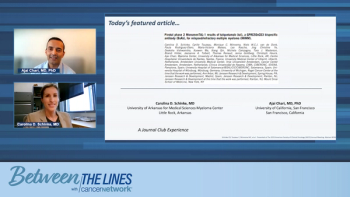
Following a brief review of the relapsed/refractory multiple myeloma treatment landscape, Carolina Schinke, MD, provides an overview of the MonumenTAL-1 study design.

Your AI-Trained Oncology Knowledge Connection!


Following a brief review of the relapsed/refractory multiple myeloma treatment landscape, Carolina Schinke, MD, provides an overview of the MonumenTAL-1 study design.
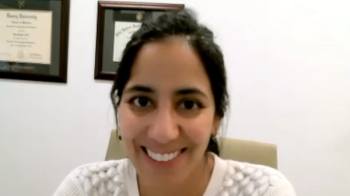
In addition to potentially moving mirvetuximab into earlier lines of treatment for those with platinum-sensitive ovarian cancer, Ritu Salani, MD, also discusses combining the agent with carboplatin to decrease toxicities and improve quality of life.
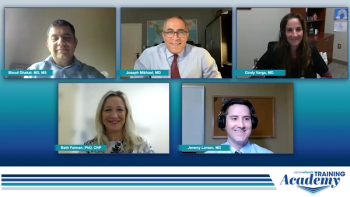
The panel closes their discussion by highlighting crucial takeaways about the use of bispecific antibodies in the treatment of multiple myeloma.

Doctors discuss the potential of bispecific therapies being used in earlier lines of treatment for multiple myeloma, and the need for understanding and reducing toxicities as much as possible.
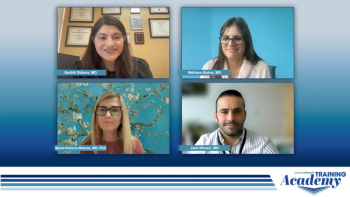
The panel looks to the future of relapsed/refractory multiple myeloma treatment and the remaining unmet needs for patients.

Closing out their panel on bispecifics in relapsed/refractory multiple myeloma, key opinion leaders share closing thoughts and hopes for the future treatment landscape.
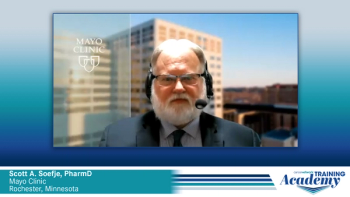
Long-term considerations for the detection and treatment of CRS and other adverse events when managing patients with multiple myeloma.
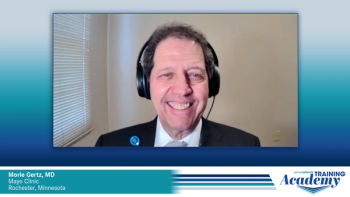
Expert panelists from Mayo Clinic discuss their approach for the use of BCMA and non-BCMA targeting bispecifics, respectively, in patients with relapsed/refractory multiple myeloma.
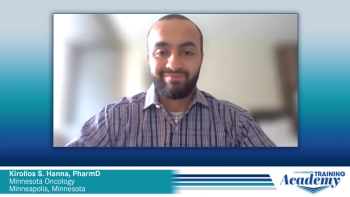
Expert perspectives on ensuring the early detection and treatment of CRS and other adverse events when initiating bispecific therapy in patients with multiple myeloma.

Noffar Bar, MD, details data on talquetamab in R/R MM treatment from the MonumenTAL-1 study, and Syed S. Ali, MD, speaks to his experience with teclistamab in clinical practice.
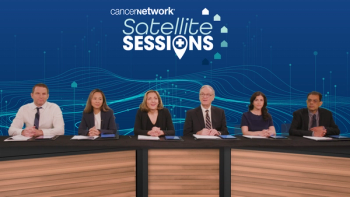
Elan Gorshein, DO, JD, MPH, explains his choice of frontline therapy for patients with relapsed/refractory multiple myeloma.

Treatment with mirvetuximab soravtansine appears to produce a 3-fold improvement in objective response rate vs chemotherapy among patients with folate receptor-α–expressing, platinum-resistant ovarian cancer in the phase 3 MIRASOL trial.
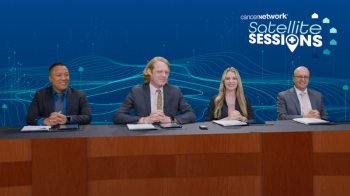
A panel of experts shares insight on treatment sequencing and selection in the setting of relapsed/refractory multiple myeloma.

Experts from Ochsner Health highlight treatment options for patients who present with transplant-ineligible newly diagnosed multiple myeloma.
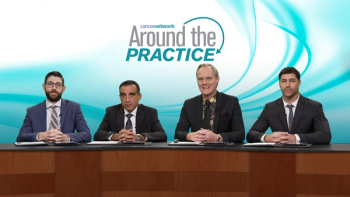
Experts on multiple myeloma discuss the management of adverse effects from bispecific antibodies.
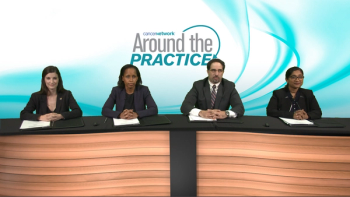
Experts on multiple myeloma offer clinical insights on treatment options and considerations for patients with standard- and high-risk multiple myeloma.

An expert panel discusses bispecific antibodies and their mechanisms of action in the treatment of relapsed/refractory multiple myeloma.

Nausheen Ahmed, MD, discusses the measurement of treatment response following induction therapy in patients with multiple myeloma.

Ritu Salani, MD, details the health-related quality of life benefits associated with dostarlimab in the treatment of advanced endometrial cancer, which includes improvements in back and pelvic pain.

Ritu Salani, MD, describes the concordance between blinded independent central review and provider-assessed outcomes with dostarlimab among patients with advanced recurrent endometrial cancer in the phase 3 RUBY trial.

An overview of myeloproliferative neoplasms (MPNs) followed by an exploration of available treatment options and addressing differences in approach based on MPN subtypes such as essential thrombocytopenia, polycythemia vera, and myelofibrosis.

Insights concerning unmet needs in MDS treatment, ongoing trials, and recent updates in the treatment landscape.

Experts explain the strategies for optimal selection between different BCMA-targeting and non-BCMA-targeting bispecifics for the treatment of relapsed/refractory multiple myeloma.

Experts review recent data on non-BCMA-targeting bispecifics for the treatment of R/R MM.
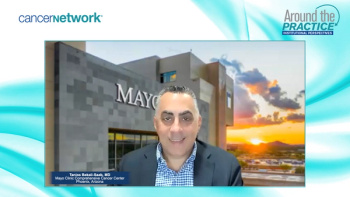
Tanios S. Bekaii-Saab, MD, provides a look at an upcoming Cancer Network Around the Practice program in which a panel of experts will present the case of a patient with colorectal cancer, review updates from clinical trials, and provide insights on the role of ctDNA in treatment decision-making.

The panel discusses how non-BCMA-targeting bispecifics might be selected and sequenced in MM.

Cindy Varga, MD, details her experience with sequencing BCMA-targeting agents for patients with relapsed/refractory multiple myeloma.
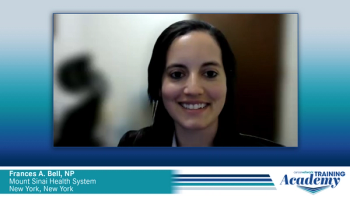
Key opinion leaders in multiple myeloma management address barriers inherent in the selection and use of bispecifics.
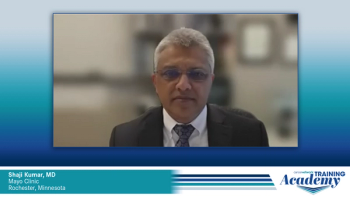
Focused discussion on the mSMART guidelines for monitoring and managing adverse events associated with bispecific therapies in patients being treated for relapsed/refractory multiple myeloma.

Experts Scott A. Soefje, PharmD, and Kirollos S. Hanna, PharmD, share their perspectives on initial steps in initiating bispecific therapy for patients with multiple myeloma.